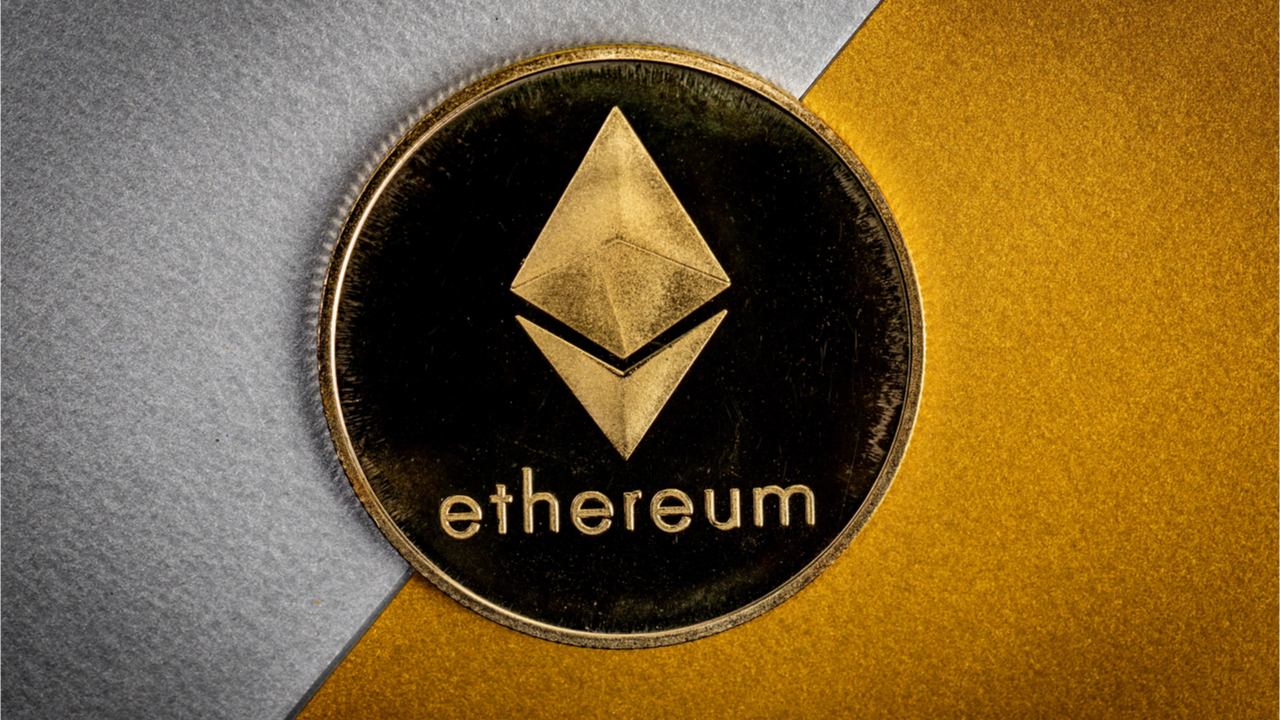 Ethereum fees have continued to slide week after week and are now at the lowest value in seven months. On Tuesday, March 8, the average layer one (L1) Ethereum gas fee is 0.0042 ether or $10.89 per transfer. At the same time, median-sized gas fees are much lower as well, hitting values not seen since […]
Ethereum fees have continued to slide week after week and are now at the lowest value in seven months. On Tuesday, March 8, the average layer one (L1) Ethereum gas fee is 0.0042 ether or $10.89 per transfer. At the same time, median-sized gas fees are much lower as well, hitting values not seen since […] It’s getting cheaper to send ethereum these days as the gas price to push a transaction is more than 80% less expensive than it was to transact with ether 48 days ago on January 10. On that day, Ethereum network fees were around $52 per transaction and today, the average transaction fee is $10.26 per […]
It’s getting cheaper to send ethereum these days as the gas price to push a transaction is more than 80% less expensive than it was to transact with ether 48 days ago on January 10. On that day, Ethereum network fees were around $52 per transaction and today, the average transaction fee is $10.26 per […] Approximately 205 days ago, the Ethereum network upgraded via the London hard fork which implemented the packaged Ethereum Improvement Proposal (EIP) 1559. Since then, the EIP-1559 upgrade made it so a fraction of gas is destroyed during the transaction process and to date, 1,915,220 ether has been burned worth over $6.9 billion using today’s exchange […]
Approximately 205 days ago, the Ethereum network upgraded via the London hard fork which implemented the packaged Ethereum Improvement Proposal (EIP) 1559. Since then, the EIP-1559 upgrade made it so a fraction of gas is destroyed during the transaction process and to date, 1,915,220 ether has been burned worth over $6.9 billion using today’s exchange […] The average transaction fee on the Ethereum network has dropped to the lowest level in four months, according to statistics on February 13, 2022. Mid-September 2021 was the last time gas fees on Ethereum were this low, as average fees have dropped to roughly $15.13 per transfer. Ethereum Fees Slide Lower It costs less to […]
The average transaction fee on the Ethereum network has dropped to the lowest level in four months, according to statistics on February 13, 2022. Mid-September 2021 was the last time gas fees on Ethereum were this low, as average fees have dropped to roughly $15.13 per transfer. Ethereum Fees Slide Lower It costs less to […]
Ethereum's average transaction fees dropped by almost 73.3% just within a month — down to $14.17 from $53.03.
The infamous transaction fees of the Ethereum (ETH) ecosystem underwent a decremental phase from Jan. 10 to record the lowest average and median fees of $14.17 and $5.67 — lowest since September 2021.
Data from Blockchair shows that the average transaction fee of ETH in January was $53.03, which at its peak was $70.83 back in May 2021. Just within a month, the average fees saw an almost 73.3% decline as evidenced by the following chart.

Additionally, the resultant median transaction fee also witnessed an 81.02% drop from January’s $29.88. In the last six months, ETH’s median transaction fee was seen lowest in September at $6.26.

Interestingly enough, the transaction count of the Ethereum network has also come down to numbers that were last seen back in early 2019. Blockchair data show that on Feb. 1, Ethereum’s transaction count went down to 14,574,808 from 36,851,128 — a 60.44% drop in just one month.

This is the first time in Ethereum history that the transaction count saw such a huge drop within 30 days. In November 2021, Ethereum co-founder Vitalik Buterin proposed a new limit on the total transaction calldata in a block to decrease the overall transaction calldata gas cost over the ETH network.
Related: Individual ETH miner hits jackpot with $540K block reward
An ETH miner operating on 2Miners: Solo pool validated a block on their own and received a reward valued at about $540,000.
As Cointelegraph reported, the miner earned 168 ETH for successfully mining the block, which vastly outstrips the per-block average reward of about 4 ETH.
 Ethereum’s co-founder, Vitalik Buterin, and developer Tim Beiko have been discussing a proposed solution to the data transfer gas problem and current scaling issues. Buterin talked about adding a feature like “blob-carrying transactions” in a “near-future hard fork.” ‘Blob-Carrying Transactions’ The price of ethereum (ETH) has moved northbound during the last two weeks, climbing more […]
Ethereum’s co-founder, Vitalik Buterin, and developer Tim Beiko have been discussing a proposed solution to the data transfer gas problem and current scaling issues. Buterin talked about adding a feature like “blob-carrying transactions” in a “near-future hard fork.” ‘Blob-Carrying Transactions’ The price of ethereum (ETH) has moved northbound during the last two weeks, climbing more […] Ethereum’s average network fees have dropped to the lowest value in 30 days at 0.0096 ether or $24.64 per transaction. Median-sized ethereum fees are lower today as well, as fees are between $8.37 to $10.82 per transaction as ether fees haven’t been this low since January 1. Onchain Ethereum Fees Drop, Current Bitcoin Fees 91% […]
Ethereum’s average network fees have dropped to the lowest value in 30 days at 0.0096 ether or $24.64 per transaction. Median-sized ethereum fees are lower today as well, as fees are between $8.37 to $10.82 per transaction as ether fees haven’t been this low since January 1. Onchain Ethereum Fees Drop, Current Bitcoin Fees 91% […]
When at least three miners do not confirm the Bitcoin transaction, it remains unconfirmed and unconfirmed transactions can be canceled.
Technically, you cannot send BTC or Ether (ETH) from a Bitcoin wallet to an Ethereum wallet. Most wallets will warn you if you try to send Bitcoin to an Ethereum wallet or ETH directly to a Bitcoin wallet.
Bitcoin transmitted to Ethereum wallets is frequently lost and unrecoverable. Before sending BTC, ETH or any other cryptocurrency, make sure the destination address is correct. Otherwise, you risk losing all of your funds.
However, payment may be verified in unusual circumstances, such as when sending Bitcoin to a Litecoin (LTC) wallet. These two coins' wallet addresses frequently begin with the number "3." In this case, your wallet may accept it as a legitimate payment. The payments, however, would be lost due to the erroneous address.
An unconfirmed Bitcoin transaction can be fixed in two ways: by using “replace-by-fee or RBF protocol” or “higher fee double-spend transaction.”
A Bitcoin transaction cannot be reversed once it has been confirmed. But, can you cancel unconfirmed Bitcoin transactions? Yes, unconfirmed BTC transactions can be canceled if the blockchain does not approve a Bitcoin transaction within 24 hours. It is considered unconfirmed until at least three miners do not confirm every transaction via the mining process. If you don’t get a confirmation within this time, you can cancel your transaction.
You can broadcast a Bitcoin transaction to the entire network a second time using the RBF Protocol, but for a higher price. As a result, miners can choose the transaction more quickly, canceling the previous transaction and starting a new one.
Your Bitcoin wallet, on the other hand, might not support the RBF Protocol. As a result, check first to see if this is something your wallet will allow you to do. When sending Bitcoin, you can choose this option to ensure that you can utilize it if necessary.
If your wallet doesn't support the RBF Protocol, use the double-spend option instead; that is, create a new transaction with a similar amount. This implies you'll have to send your Bitcoin transaction a second time, this time with a greater fee. Miners will, in most situations, accept the new transaction and return the old one.
Aside from boosting your transaction fee to jump ahead of the line, another strategy to speed up your Bitcoin transaction is to send it during off-peak hours. The mempool size chart on the blockchain.com explorer indicates when the number of unconfirmed transactions is at its lowest.
BTC Nitro is a Bitcoin transaction accelerator that helps you speed up BTC transactions by cutting down the time it takes for confirmations. BTC Nitro will rebroadcast your transaction over several worldwide Bitcoin “nodes,” re-queuing it and reminding miners that it is ready for processing. Its premium solution eliminates this step by instantly incorporating it into the next block mined by its network partners.
In addition to the above, BitAccelerate is a free Bitcoin transaction accelerator that enables you to receive faster confirmations on unconfirmed transactions. Simply input the Bitcoin transaction ID (TXID) and select "Accelerate." The transaction will be relayed through ten Bitcoin nodes using their service.
When many users use Bitcoin, the block size approaches its limit, resulting in a crowded Bitcoin network. As a result, certain transactions are held up while Bitcoin transaction confirmation is obtained. These Bitcoin users must pay higher miner fees and/or employ SegWit transactions to speed up the process.
There is an alternative to dealing with your pending Bitcoin transaction. Until your "Stuck" transaction is confirmed, resubmit it every six hours. You can verify or track Bitcoin transactions, i.e., whether your transaction has been confirmed regularly using the BitAccelerate service. The system will inform you if it is confirmed or needs to be rebroadcasted.
Blockchain.com and Statista are two excellent resources for estimating the average time it will take to complete a BTC transaction or transfer.
You can also get advice on the transaction fees you should include, which are usually expressed in satoshis, as discussed earlier. You run the risk of offending Bitcoin miners if you submit a Bitcoin transaction with reduced fees, and your payment may land up in a long list of unconfirmed transactions. However, you shouldn't be too concerned because it will be processed if the Bitcoin network experiences a large lull and miners have nothing else to do.
The average confirmation time of a BTC transaction or Bitcoin transaction status is influenced by factors such as total network activity, hash rate and transaction fees.
The average confirmation time for a BTC payment on the Bitcoin network is around 10 minutes. Bitcoin transaction time, on the other hand, can vary greatly. There will be a backlog of transactions in the mempool if the Bitcoin network is overburdened. Users would have to pay higher transaction fees for transactions to go through faster. This happened in April of 2021 when the average Bitcoin transaction fee was $58.
However, Bitcoin's average transaction cost decreased by 57.97% in November 2021, from $4.40 to $1.80. Several things may have contributed to this decline. One argument is that the rapid growth of the Bitcoin Lightning Network, which allows transactions to take place outside of the blockchain, acted as a catalyst.
The decrease in expenses could be linked to Bitcoin miners losing interest in processing transactions and becoming less skeptical. The mining difficulty, which quantifies how tough it is to validate a Bitcoin transaction, decreases as a result.
The decongestion of the mempool, which is the collection of all pending transactions before they are confirmed, is another likely reason for the lowering transaction cost. When you send a transaction to the Bitcoin network, it stays in the mempool until it is confirmed. Because each BTC block is limited to 1MB in size, a big mempool could incentivize miners to prioritize more profitable transactions.
Transaction costs are calculated based on the transaction's data volume and network congestion.
As a block can only hold 4 MB of data, the number of transactions that can be executed in one block is limited. Therefore, more block data is required for a larger transaction. As a result, more significant transactions are usually charged on a per-byte basis.
When you use a BTC wallet to send a transaction, the wallet will typically provide you with the option to choose your Bitcoin fee rate. This charge will be determined in satoshis per unit of data (there are 100,000,000 satoshis in one Bitcoin) consumed on the blockchain by your transaction, abbreviated as sats/vByte. This rate will then be multiplied by the size of your transaction to get the total fee you'll pay.
If you want your transaction to be confirmed right away, your optimal fee rate may vary significantly. If you don't mind waiting, spending 2 sats/vByte will usually allow you to confirm your transaction within a day or a week.
Transaction fees also reflect the speed with which the user wants to have the transaction validated. When a user initiates a transaction, it goes into the mempool (transactions that have not yet been put to the blockchain and are being stored in volatile memory).
Upon validation, it is included in the block. Miners choose which transactions to validate and include in the block. When there is a backlog of transactions waiting to be validated, it creates an incentive for miners to process transactions with higher fee rates first. Most miners target transactions with high fee to byte ratios. When network transactions begin to reduce, transaction fees will fall.
Bitcoin exchanges, which connect buyers and sellers, calculate their fees in two ways: either a fixed fee per transaction or a percentage of total transaction volume over the previous 30 days. Exchanges use a tiered fee structure, depending on the total dollar volume transacted in both circumstances.
Fee arrangements are designed to encourage traders to trade frequently. As a result, costs for high-value and high-frequency transactions are correspondingly reduced. Fees for small, infrequent transactions are frequently higher.
Transaction fees are calculated as the difference between the amount of Bitcoin (BTC) transmitted and received.
Transaction fees are, in theory, a representation of how quickly a user wants their transaction confirmed on the blockchain. When a miner certifies a new block in the blockchain, they validate all of the transactions included within it.
A miner receives the transaction fees and block subsidy associated with a new block once it has been validated. The block reward is the total of transaction fees and block subsidies. The hash rate decreases with each Bitcoin halving. A decline in hash rate raises the cost of mining new blocks while lowering the block rewards.
Because validating new blocks requires a lot of computational work and energy, miners are incentivized to keep validating new blocks as transaction fees rise. Maintaining network security necessitates keeping miners in the market, and transaction fees play an important role.
 According to statistics, Ethereum network transaction fees have dropped 35% from the transfer fees recorded seven days ago. At the time of writing, the average fee to transact with ethereum is 0.0099 ether or $30.85 to $33.04 per transfer. The cheapest Layer two (L2) method to transfer ether on Wednesday is $0.25 per transaction using […]
According to statistics, Ethereum network transaction fees have dropped 35% from the transfer fees recorded seven days ago. At the time of writing, the average fee to transact with ethereum is 0.0099 ether or $30.85 to $33.04 per transfer. The cheapest Layer two (L2) method to transfer ether on Wednesday is $0.25 per transaction using […] The number of ether locked in the Ethereum 2.0 contract has exceeded 9 million ethereum or more than $28 billion using today’s exchange rates. The amount of ethereum locked into the contract has increased 22.29% since the first week of September 2021, when the contract held 7.4 million ether. Ethereum 2.0 Contract Exceeds 9 Million […]
The number of ether locked in the Ethereum 2.0 contract has exceeded 9 million ethereum or more than $28 billion using today’s exchange rates. The amount of ethereum locked into the contract has increased 22.29% since the first week of September 2021, when the contract held 7.4 million ether. Ethereum 2.0 Contract Exceeds 9 Million […]